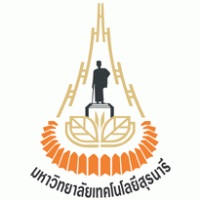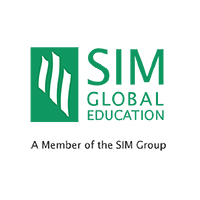托福口语答题技巧大揭秘:助你突破语言难关
Editor:Mark| Time:2025-02-22在托福考试中,口语部分常常让许多考生感到头疼。它不仅要求考生具备流利的英语表达能力,还需要掌握一定的答题技巧,才能在有限的时间内展现出自己的最佳水平。今天,我们就来深入探讨一下托福口语的答题技巧,帮助大家在这个部分取得更好的成绩。
一、独立口语答题技巧
1. 迅速组织思路
在拿到独立口语题目后,短暂的思考时间至关重要。首先,要明确题目核心,确定自己的观点。例如,题目问“Do you agree or disagree that students should take a year off before going to college?”,考生需要在几秒钟内决定自己同意还是不同意,并在脑海中简单梳理出几个支持观点的理由。
可以采用“总 - 分 - 总”的结构来组织思路。开头直接表明自己的观点,如“I firmly believe that taking a year off before college is a great idea.”。中间部分列举两到三个具体理由,比如“Firstly, it allows students to gain real - world experience, which can make them more mature and better prepared for college. Secondly, they can explore different interests and figure out what they truly want to study.”。结尾再次强调自己的观点,“In conclusion, a gap year can be highly beneficial for students before they enter college.”。
2. 丰富内容细节
为了让回答更具说服力,要尽量丰富理由中的细节。以支持“taking a year off can gain real - world experience”为例,可以说“For instance, they can work in a local company. If a student is interested in business, working in a marketing department can give them practical knowledge about market trends, customer needs, and marketing strategies. This hands - on experience is much more valuable than what they can learn from textbooks in college.”
3. 注意语言流畅度
保持流利的表达是关键。平时练习时,可以多进行一些限时的口语复述练习,比如复述一篇新闻报道或者一个小故事。遇到卡顿不要慌张,尝试用一些填充词,如“um”“well”“you know”等过渡一下,然后迅速调整思路继续说下去。同时,要注意语速适中,既不能过快导致发音不清晰,也不能过慢浪费时间。
二、综合口语答题技巧
1. 听力理解是基础
综合口语部分通常会先给出一段听力材料,然后根据听力内容进行回答。所以,准确理解听力内容是第一步。在听的过程中,要学会抓住关键信息,如主题、观点、例子等。可以边听边做笔记,用简单的符号和缩写记录重要内容。例如,“increase”可以写成“↑”,“decrease”写成“↓”,“example”写成“eg.”等。
2. 整合听力与阅读(如果有阅读材料)
如果综合口语题目包含阅读材料,要将阅读和听力内容有机结合。比如,阅读部分介绍了一种新的校园政策,听力中教授对该政策进行评价。考生需要清晰地阐述教授的观点是支持还是反对该政策,并给出相应的理由,这些理由往往来自听力内容。
在回答时,可以这样说:“The reading passage proposed a new policy to ban the use of electronic devices in the library. However, the professor in the listening disagreed. She pointed out that banning these devices would actually reduce students' efficiency. For example, students often use their tablets to quickly look up reference materials, which is much faster than searching through traditional books. Without these devices, they would have to spend more time finding the information they need.”
3. 逻辑清晰地呈现
按照一定的逻辑顺序来回答综合口语问题。可以采用总分总的结构,先总体介绍听力和阅读的主要内容,然后分别阐述支持或反对的理由,最后总结自己的观点。例如,“In summary, based on the reading and listening materials, although the new policy aims to improve the library environment, the professor's concerns about students' learning efficiency are valid. Therefore, I think the policy needs to be further considered and perhaps adjusted to better meet the needs of students.”
三、日常练习与提升
1. 模仿标准发音
多听一些标准的英语发音材料,如托福口语范文、英语新闻等。模仿其中的语音、语调、连读等发音技巧。可以通过录音对比自己和标准发音的差异,不断改进。
2. 积累口语素材
平时注意积累各种话题的常用表达和例子。比如关于旅游的话题,可以积累一些描述景点的词汇和句子,像“picturesque scenery”(风景如画)、“a fascinating historical site”(一个迷人的历史遗迹)等。还可以收集一些名人名言、有趣的故事等,在回答问题时适当引用,增加回答的亮点。
3. 找伙伴练习
与同学或英语学习伙伴进行口语练习。互相提出问题,模拟考试场景进行回答。通过交流和讨论,可以从不同角度了解自己的不足之处,同时也能学习到他人的优点和答题思路。
总之,掌握托福口语答题技巧并不断练习是提高口语成绩的关键。通过合理组织思路、丰富内容细节、保持语言流畅度以及有针对性地进行日常练习,相信大家都能在托福口语考试中取得理想的成绩,顺利实现自己的留学梦想。





